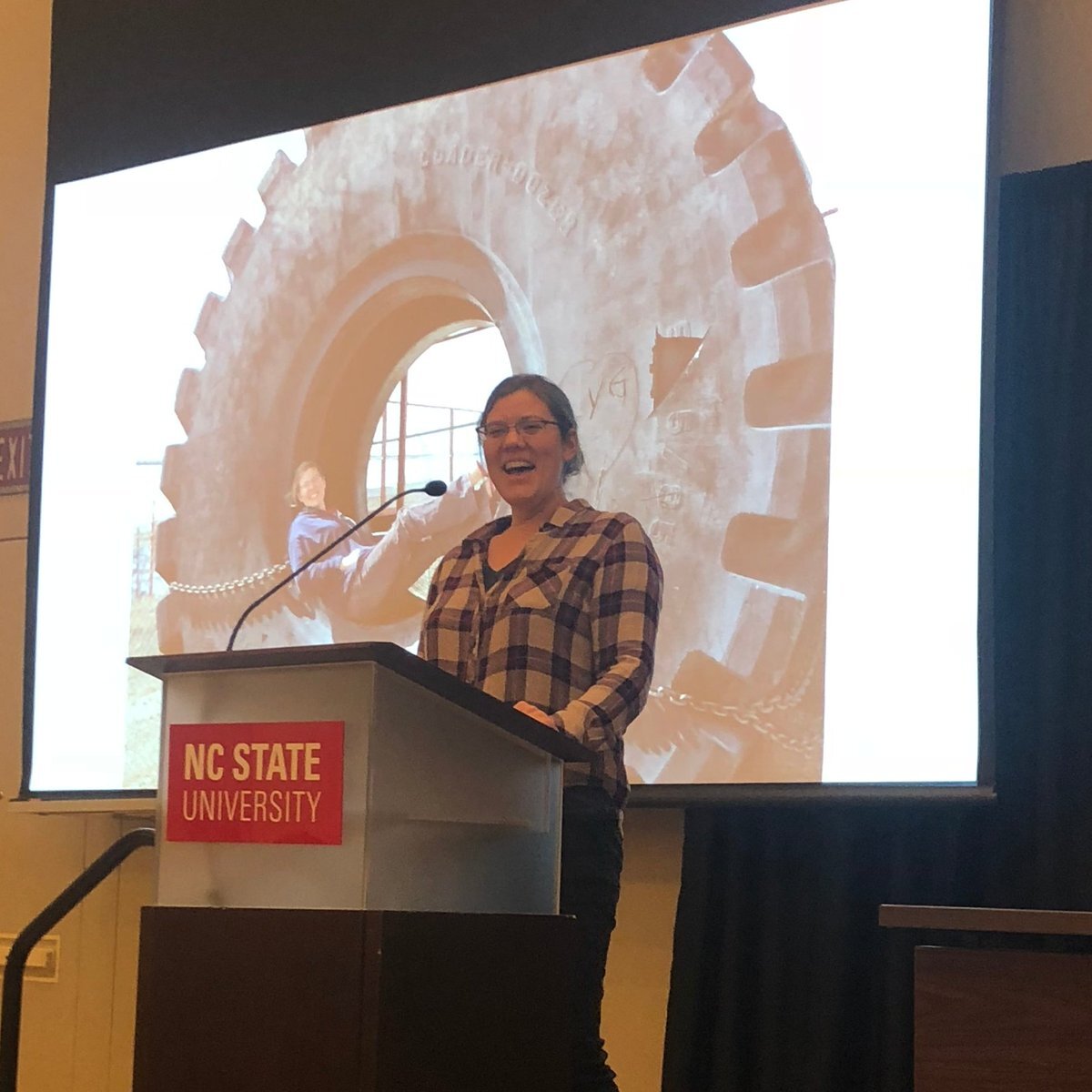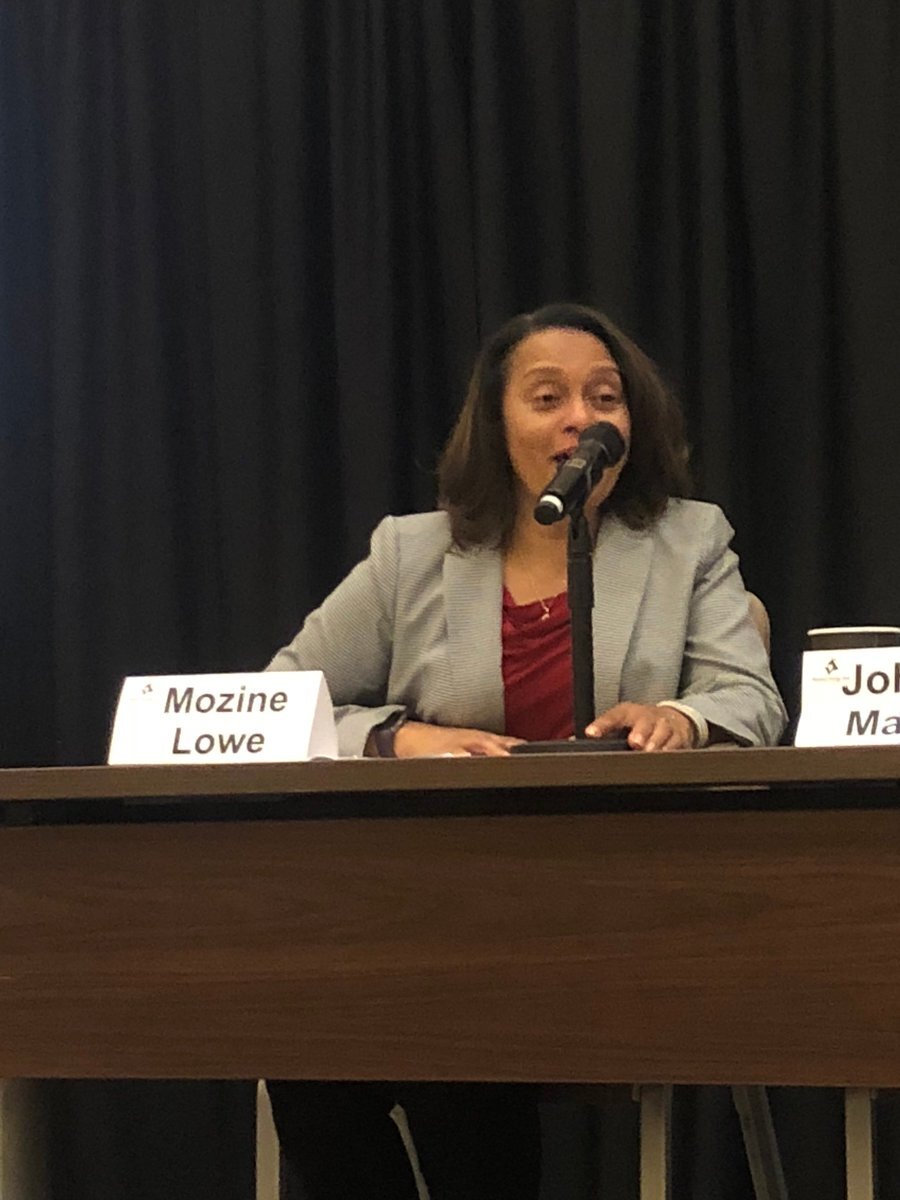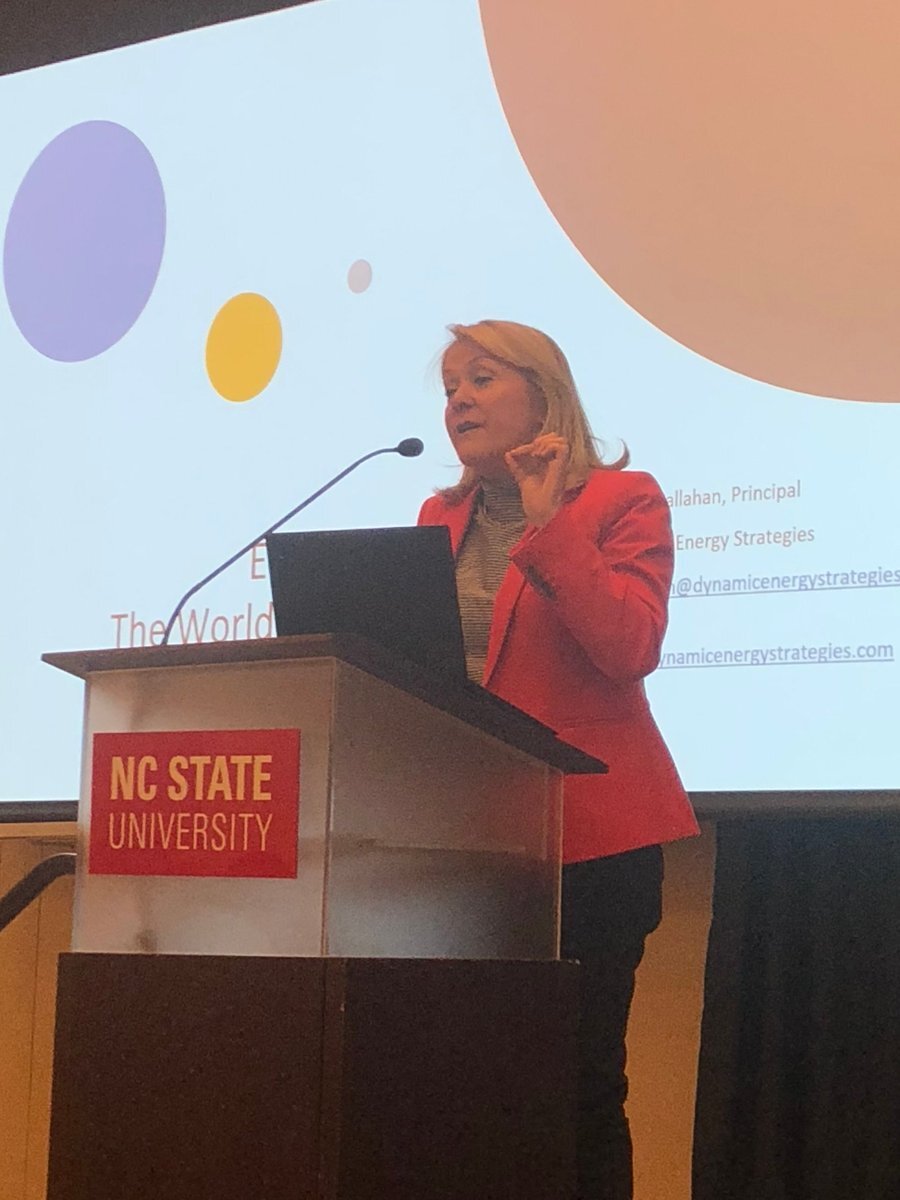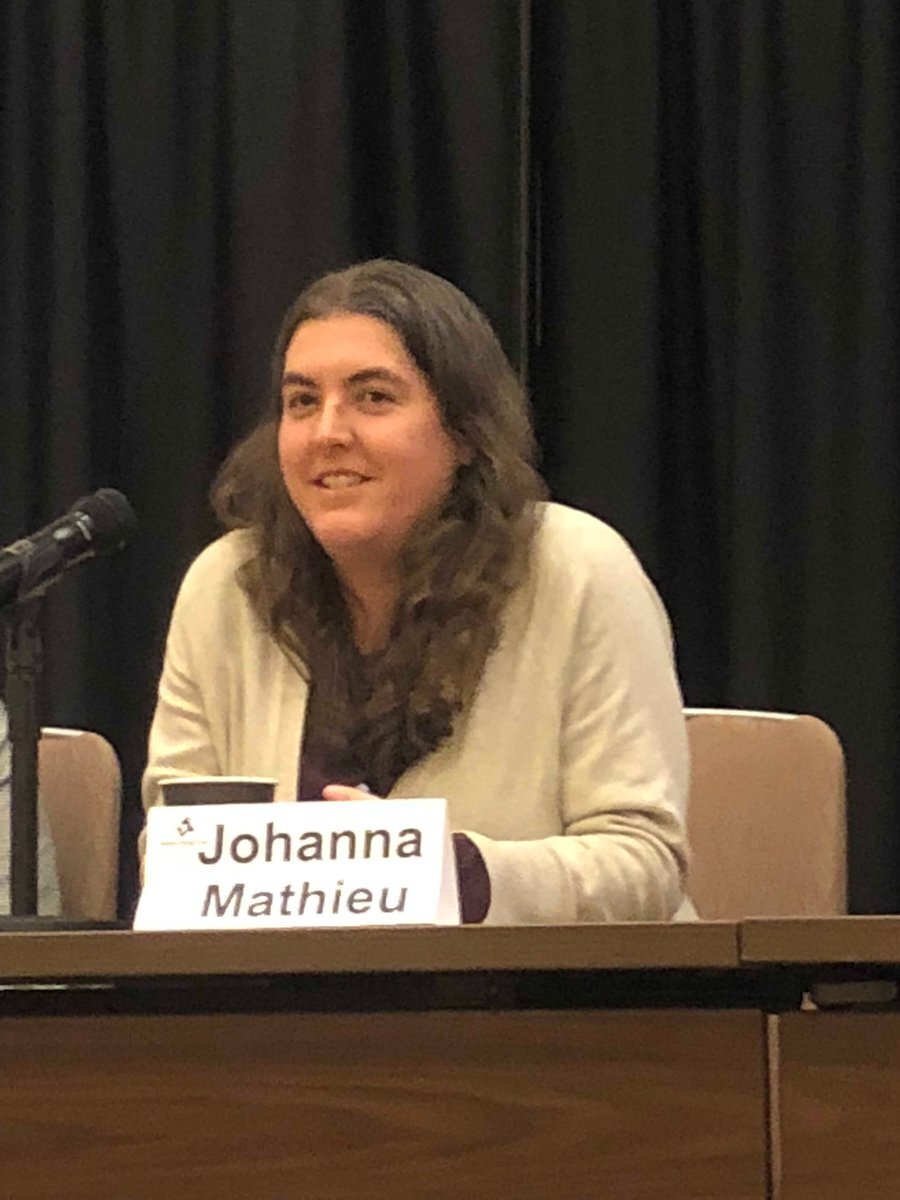Event Recap: The Future of Energy and the Women Shaping It
On Tuesday, November 5th, the Student Energy Club hosted a panel discussion called “Power Shift: The Future of Energy and the Women Shaping It.” The four panelists, all women, were Ms. Mozine Lowe, Executive Director of the Center for Energy Education; Dr. Johanna Mathieu, professor of Electrical Engineering and Computer Science at the University of Michigan; Dr. Emily Grubert, professor of Civil and Environmental Engineering at the Georgia Institute of Technology; and Ms. Kateri Callahan, Principal of Dynamic Energy Strategies.
With the audience gathered in the Ocracoke Ballroom of Talley Student Union for the panel discussion, Martina Gonzalez Bertello, Student Energy Club vice president, gave introductory remarks at the podium while sharing the club’s vision.
Student Energy Club vice president, Martina Gonzalez Bertello, leading the moderated Q&A during the Women in Energy panel. (Source.)
“Our mission is to integrate NC State’s energy community while also encouraging faculty, departments, and students of all years and majors to participate in discussing and learning about the technologies, policies, and people in the energy revolution.”
During their introductions and before the Q&A, each panelist touched on their background in energy and shared what they’re working on now.
Mozine Lowe, for example, through the Center for Energy Education, hosts community programs and workshops centered on education, often for high school students and local rural communities. In these programs topics include energy efficiency, climate change, workforce development, and renewable energy sources. Emily Grubert, through scholarship and teaching, examines energy systems and the balancing of trade-offs in sustainability. A new technology, for example, could produce zero carbon emissions but use tons of water. When is that okay? How is that socially sustainable and what does that mean for workers in related industries?
One thing all of the panelists emphasized during the Q&A, and repeatedly, was the importance of interdisciplinary communication and finding balance in systems when mapping the future of energy. While the creation of a new wind farm (or any new resource) may seem like a job for engineers, creating truly holistic approaches and models requires input from social scientists, economists, mathematicians, experts in analytics, and so on.
And in that light, while the four women addressed the questions posed with often clear solutions or action in mind, many questions still remain. How can we make energy systems more efficient? What does appropriate advocacy look like? How can we bring new technologies like rooftop solar to rural communities while making them affordable?
This proliferation of questions speaks not only to the inquisitive nature of the panelists and the many dimensions of sustainability but, more deeply, to the importance of questions themselves.
“We want people to start thinking about what is happening in the climate around us and things that we can do to combat climate change.”
As the Q&A progressed in the Ocracoke Ballroom, discussion shifted seamlessly between the technical aspects of energy and more social dimensions—diversity, belonging, and gender, to name a few. As always there’s a balance. A university program or department too dominantly male or female can lead to a one-sidedness and exclusivity of voices.
And when this happens the minority, more often women, in the name of diversity are added to many committees and groups. (To say nothing about the heavy time commitment of being on so many committees, shifting the focus away from teaching and research.) In such a position, though, it’s easy to feel included only for more surface-level reasons instead of for one’s skills and ideas. Johanna Mathieu referred to this as “The Imposter Syndrome.” She added, too, that it’s hard to be the only woman in the room at a conference. Even once a space of diversity is established, how do we ensure that everyone feels that they belong? These things are especially important in a field so actively in need of engineers, researchers, educators, people in public policy, and so on.




When the panelists were asked about advice to women pursuing energy they said, without hesitation, to lean forward and go for it. There are many opportunities right now in energy. In fact, there are three times as many jobs in the clean energy industry as there are in the fossil fuel industry. As Kateri Callahan pointed out, “The Department of Labor has reported that in the energy industry, the average age is about 50. They expect about half of those people to retire within the next 5-10 years. By 2024, [the electric utility industry] is going to need 100,000 new workers just to stay at the current level of workforce.” Pursuing these jobs, of course, and growing into oneself is a process. Johanna Mathieu, on this point, emphasized the importance of finding a mentor. Finding someone who is an expert, not even necessarily in the same field, to ask questions to and just learn from. Then, upon feeling comfortable and within an established network, become a mentor yourself.
“I tell my students, ‘When you get these jobs that you have been so brilliantly trained for, just remember that your real job is that if you are free, you need to free somebody else. If you have some power, then your job is to empower somebody else.’”
Looking to get involved with energy and make a difference in the NC State community? Our mentorship program provides an opportunity for NCSU students to connect with current graduate students on campus to talk about research, field experience, education, and more. To learn more, visit our mentorship program page here.
For other club news about what’s happening on campus, follow us on social media or check out our events calendar. See you soon!
About the Author: Andrew Cheek is a writer, marketing strategist, webmaster, and running enthusiast living in Raleigh, NC. His writing has appeared in a variety of online and print publications, with editorial experience in book editing and blog management. His latest project is a series of artist interviews appearing on Medium.com.


